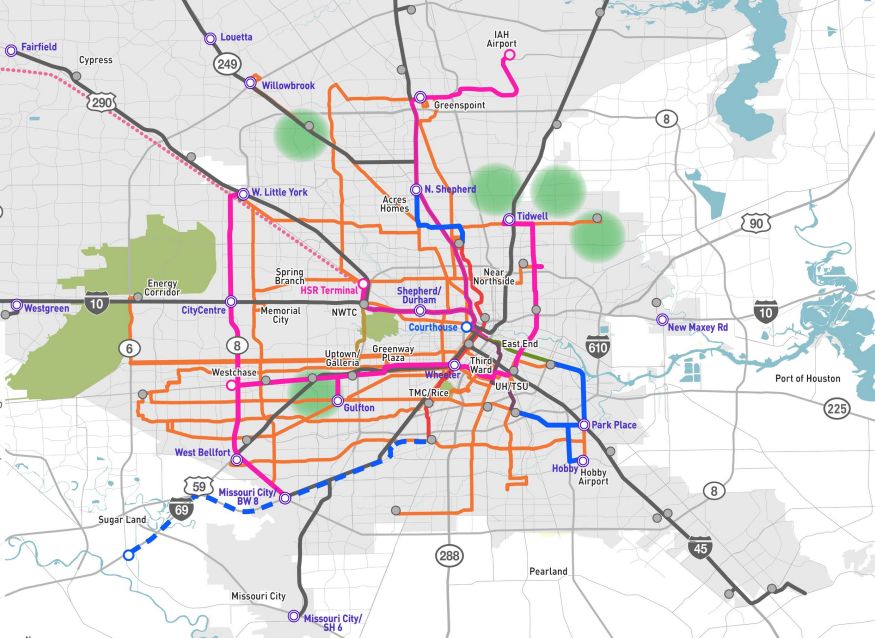From Sunday’s op-ed section, three leaders of LINK Houston advocate for the Universities BRT line as promised in the 2019 Metro referendum. This is the part that is most of interest to me:
There’s a lot on the line. If METRO chooses to not advance the University Corridor BRT project to the next phase in the federal grant process by June 27, it will lose nearly $1 billion in funding — 60% of project costs.
Notably, METRO has completed 30% of the geotechnical design based on current conditions, and secured federal environmental clearance for the project which will expire in November 2026. If METRO misses the June deadline to move to the next phase, much of this work will need to be updated or redone. While this would not preclude METRO from applying in the future, the project’s current favorable standing with the federal government would be undeniably less certain.
So why the shift?
The committee suggested that the pandemic and struggling ridership numbers contributed to the financial crunch. But that’s hardly the whole story.
The University Corridor project was initiated in earnest in 2021, after the effects of the pandemic were already known. Just last November, the METRO board affirmed that the agency was committed to the project and in the financial shape to pull it off. METRO’s finances are among the healthiest of all transit agencies nationwide, with robust sales tax revenue and an AAA credit rating. Not to mention that voters gave METRO $3.5 billion in bonding capacity to build the METRONext plan.
Meanwhile, increasing ridership has become the north star of the current board. Despite the narrative we hear from METRO’s own leadership, ridership is on the upswing. Data analysis from our 2024 Equity in Transit Report shows that METRO has experienced the second highest recovery among the top 20 metro areas. Ridership on the local bus network has now surpassed pre-COVID levels. Improving service where people are already riding is precisely the best opportunity for growth.
Not to mention that our current climate crisis demands we invest in solutions. The Houston Climate Action Plan shows that the highest percentage of greenhouse gas emissions comes from the transportation sector. In a region already experiencing the impacts of climate change, and with goals of reducing greenhouse gas emissions, it is imperative that METRO leadership invests in the future by building out a key component of the bus rapid transit system — the University Corridor.
And yet instead of scaling back the University Line, METRO is poised to abandon it entirely.
Their proposal is to scale the line back to a Wheeler-to-Westchase route, which is basically just the east-west portion of the U-line. That makes a lot of sense – it’s mostly the original vision for the Universities line, back when we were promised it would be light rail, extended further on the west end and clipped on the east end. My suggestion was UH/TSU to Wheeler, which is a lot shorter but which does include two of the actual universities that were supposed to be served by the line. Theirs would probably have more ridership and would therefore be more likely to be competitive for federal grants. However you slice it, doing something is way better and far less insulting than doing nothing. It’s also good to be reminded again that this is a choice being made by the new Board. They could – and very mush should – choose to do otherwise.

